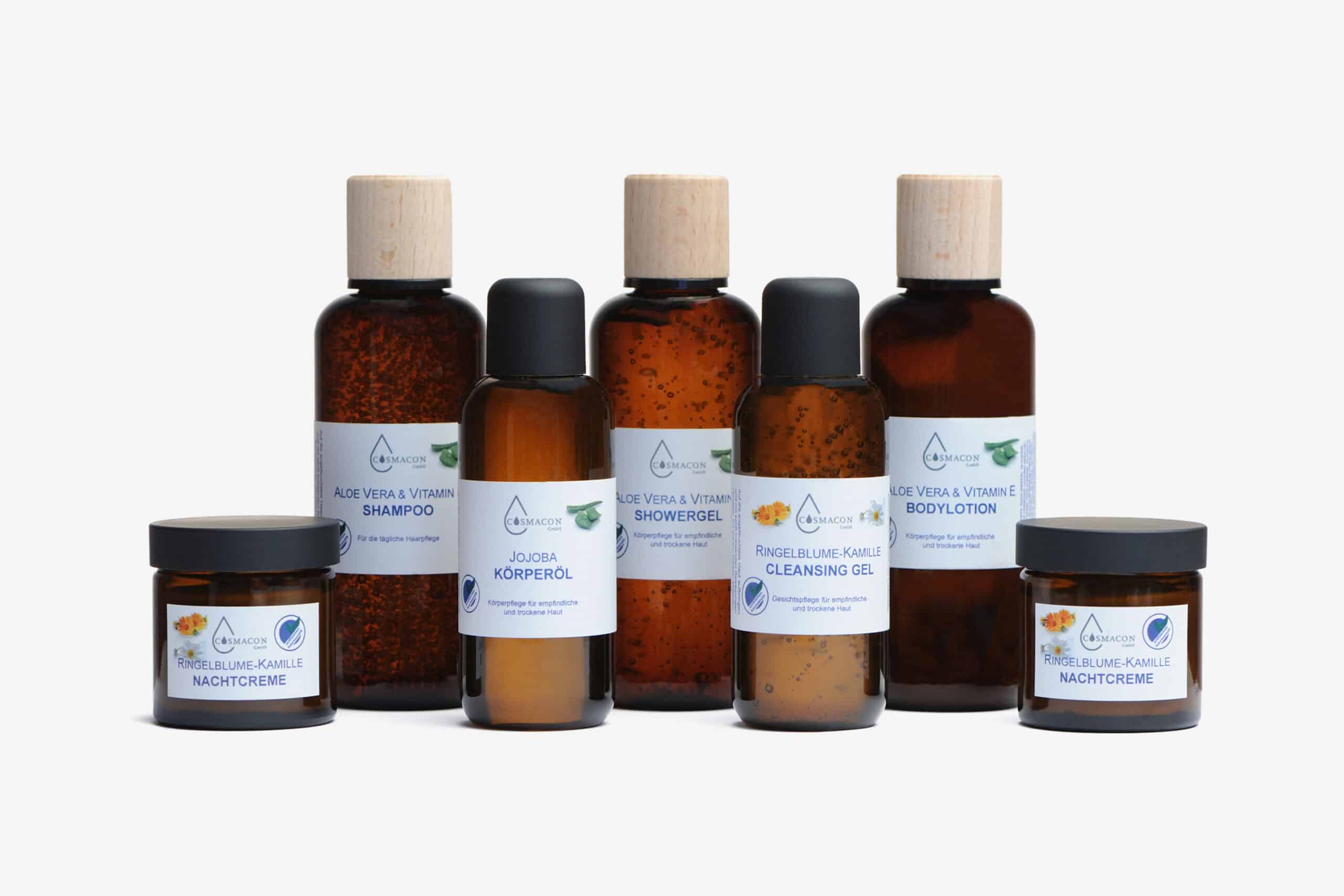
Product certifications prove that the respective articles meet certain standards and norms. The products thus distinguish themselves positively from goods without certification in certain respects, which gives the consumer a good feeling when buying. Ultimately, therefore, certification has a sales-promoting effect. A good example is ISO 16128, which is a possible standard for natural cosmetics and includes clear definitions for natural ingredients. This includes, for example, the terms "ingredients of mineral origin" and "natural ingredients".
Brief explanation: Certified natural cosmetics do not contain synthetic ingredients such as parabens, silicones and mineral oils and exclude questionable ingredients even if they are actually permitted by law. It consists of at least 50 percent plant-based ingredients. The proportion of ingredients from organically certified cultivation must be at least five percent.
Organic cosmetics consist of at least 95 percent plant-based ingredients, and at least ten percent of all ingredients come from organically certified cultivation.
Near-natural cosmetics do not quite reach the high standard of certified natural cosmetics, but still avoid many mineral oil-based ingredients and prefer natural substances instead.
The ISO 16128 standard can be used as a supplement or in addition to other certifications. Well-known examples are NATRUE and the COSMetic Organic Standard (COSMOS). If organic and natural cosmetic ingredients are clearly defined, transparency is not only higher for consumers, but also for manufacturers.
However, suppliers who want to have their cosmetic products certified according to ISO 16128 have a long way to go, because the procedure is quite elaborate and time-consuming. However, they can simplify the certification process considerably by contacting Cosmacon. We can assist you with ISO 16128 certification by having all raw materials tested by independent and expert safety assessors.
Things to know about the ISO 16128 standard
ISO is the abbreviation for International Organization for Standardization. It is therefore a non-governmental, international and independent organisation that currently has 167 members. Good to know: There is only one member per country. The Central Secretariat is located in Geneva (Switzerland). The organisation brings together experts who use their knowledge to develop international and market-relevant standards. It has its origins in 1946, when delegates from 25 countries met for the first time in London. To date, ISO is responsible for more than 24,700 international standards covering virtually all areas from technology to manufacturing. It has also developed quality standards for cosmetics production.
The ISO 16128 standard was created in 2017 to achieve a uniform definition for organic and natural products. While it provides cosmetic brands with a measurement tool, it is not used to derive marketing claims. The standard defines the criteria for natural and near-natural as well as for organic and derived organic ingredients. For example, water is always considered a natural ingredient. However, it is only considered biological under very specific criteria and conditions.
In addition, the ISO 16128 standard states that the ingredients of plants that have been genetically modified can be considered natural in certain regions. It also provides the corresponding definitions for these ingredients.
It should be noted, however, that ISO 16128 does not specify any threshold values for a cosmetic product to be considered natural and/or organic. However, if the proportion of natural carbon atoms is at least 50 per cent, the definition of "natural" according to ISO 16128 is fulfilled.
The numerical approach makes it easier to compare individual raw materials, but also finished products. For this reason, more and more raw material suppliers and manufacturers of cosmetic products like to use it.
A certificate therefore only brings advantages to cosmetics suppliers, which is why it should not be dispensed with if possible.
Cosmacon now also offers its own certification. All raw materials are carefully checked by independent experts. We attach great importance to completing this process without long waiting times and unnecessarily high costs. At Cosmacon, certification takes a maximum of ten working days. The costs in the form of a one-time fee are only 250 Euro.
ISO 16128 natural cosmetics certification by Cosmacon: professional, fast, and economical
We help you with certification by arranging a comprehensive, professional, and independent check of all raw materials. According to scientific criteria, but without any bureaucratic hurdles. Benefit from our services and have your products certified according to ISO 16128 in a simple and uncomplicated way: For further information, please do not hesitate to contact us!
